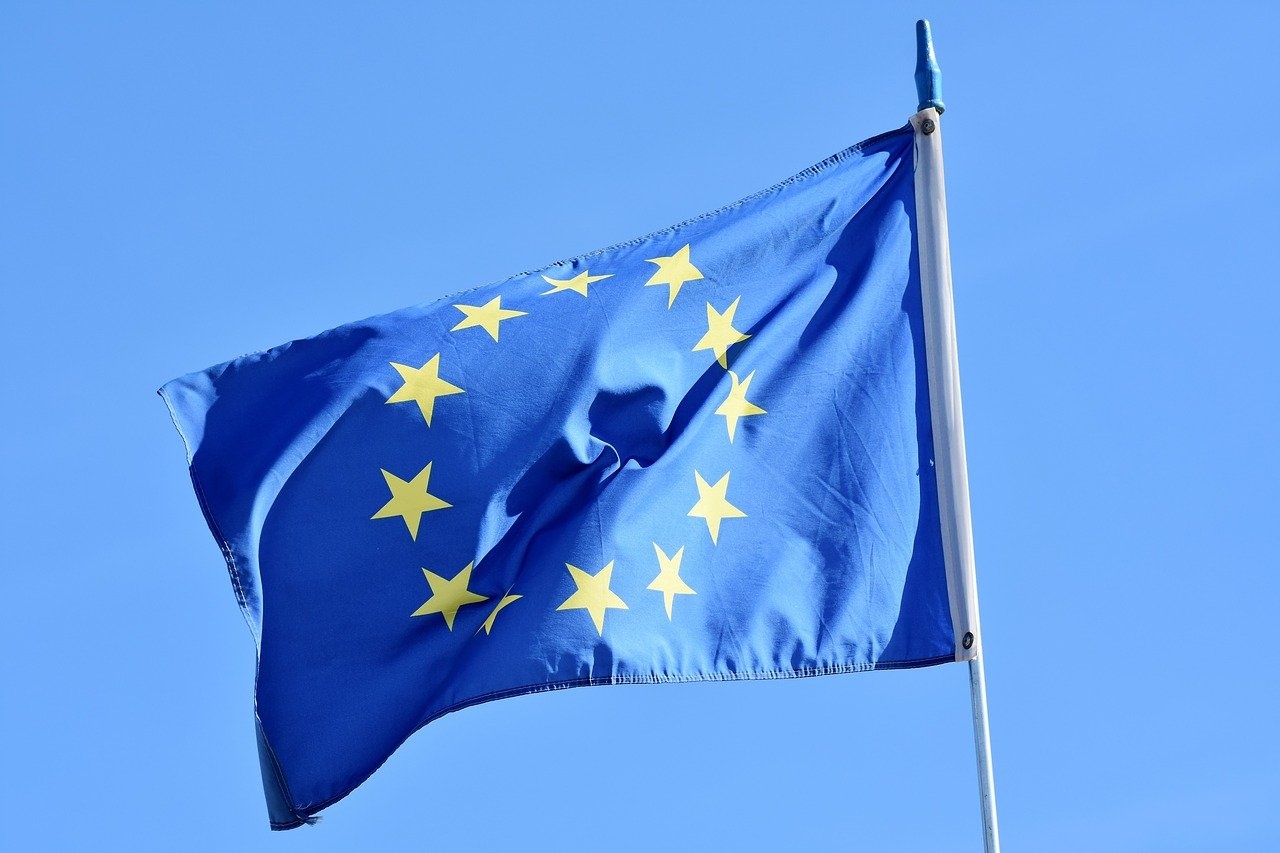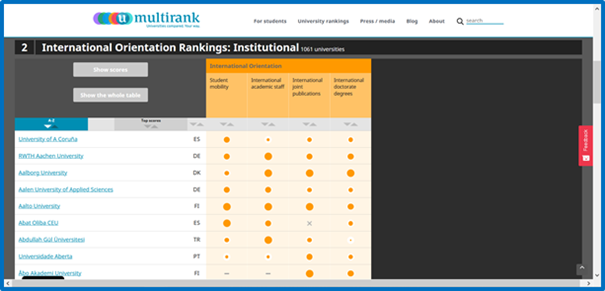Erasmus+ Programme nearly doubles budget | Mobility and learning support for all in 2021-2027
Valentin Schinnerl and John Roman, U-Multirank
May 10, 2021 16:48 (CET)

In Europe, most people have heard of, participated in or at least know someone who has participated in the Erasmus+ programme. The programme aims to create mobility and cooperation opportunities in higher education, vocational education and training, adult education and school education (including early childhood care, education and care), youth and sport. A strong focus will be placed on Inclusion and Diversity, the green and digital transformation, as well as on promoting young people's participation in democratic life. In short, the programme aims to connect people, introduce them to new cultures and create a sense of community in Europe. The Erasmus programme is considered the third greatest achievement of the EU in Europe - just behind freedom and peace. The Erasmus+ programme will provide over €28 billion through the years 2021 through 2027 to support mobility and learning for all, across the European Union and beyond.
'I welcome the launch of the new Erasmus+ programme, which has affirmed itself as one of the great achievements of the European Union. It will continue to offer learning opportunities to hundreds of thousands of Europeans and beneficiaries from associated countries. While providing a life-changing experience of mobility and common understanding amongst fellow Europeans, the programme will also help us to deliver on our ambitions for a more fair and greener Europe.’ said Vice-President for Promoting our European Way of Life, Margaritis Schinas
What is the Erasmus+ Programme?
The Erasmus+ programme has three main objectives:
- mobility opportunities (70% of the budget),
- cooperation projects and
- support to policy development and cooperation (with the second and third points totaling 30% of the budget).
Of the three objectives, the best known is the area of mobility opportunities, which offers students and teachers the possibility to gain experience abroad. This includes classic semesters abroad but also internships. The aim behind this measure is that participants' self-confidence and soft skills are improved, that participants discover other cultures and build interpersonal relationships with people from other countries. Through these steps, a stronger social inclusion and a strengthened European identity should be built.
The Erasmus+ cooperation projects aim to focus on exchange, cooperation and collaboration. This involves making better use of new technologies, developing innovative teaching, training and learning methods, promoting non-formal learning and developing common tools and activities that pursue the goal of a European identity.
Support to policy development and cooperation aims at reform and modernisation at EU level in the fields of education and training, and at doing much for youth and sport. Attention will also be paid to cooperation with international organisations pursuing the same goal.
What has been implemented to the Erasmus+ Programme?
More flexibility will be made available to students so that they have more opportunities for internships and semesters abroad within and outside the EU.
These are the innovations in mobility opportunities:
- In higher education, the 'blended intensive' programme combines online learning and teamwork with short-term mobility abroad.
- The number of opportunities to go abroad has doubled for learners in vocational education and training (Erasmus-Pro) - there are also more places for people from outside the EU.
- Erasmus+ also funds mobility for school students and whole classes to gain experience abroad.
- Learners in adult education are also included in the funding. Tailored education and training opportunities are provided to support personal development.
- Youth-led initiatives will also be included in the programme, both to promote democratic life and to provide opportunities for participants to engage in civil society.
- DiscoverEU will be an integral part of the programme. It offers 18-year-olds the opportunity to travel around the EU (mainly by train) for a month, connecting with other Europeans and learning about Europe's rich cultural heritage. It also teaches competences and life skills and introduces young people to sustainable travel.
- The mobility opportunities are additionally supported by language learning opportunities through the Erasmus+ Online Language Support tool (OLS).
These are the innovations in the cooperation projects:
- Smaller partnerships are designed to cover a wider range of interests and make it easier for newcomers to get started. For this reason, there are lower grant amounts, shorter durations and simple requirements to cooperate with the Erasmus+ programme.
- The European University Initiative aims to facilitate deeper and systemic cooperation between universities. This should contribute to an increase in quality and competitiveness.
- The Centres of Excellence for Vocational Education and Training will be fully implemented and will be used to deliver high quality vocational competences and to promote inclusion and innovation.
- Erasmus Teachers Academies will be further developed to provide training on online and distance learning and support to better address disadvantaged learners.
- Erasmus Mundus Joint Masters will be further developed to promote partnerships and enhance student mobility.
- Emphasis will be placed on projects and partnerships that embody innovative and forward-looking ideas. This move is intended to improve education and training.
- More partnerships will be established with institutions from countries around the world to increase capacity for study outside Europe.
- The sports dimension of the programme will be strengthened through the promotion of collaborative partnerships. The aim here is to use sport to raise awareness of issues such as social inclusion, equal opportunities and health-promoting activities.
These are the innovations in supporting policy development and policy cooperation:
- The Jean Monnet Actions broaden awareness about the EU and create opportunities for teaching, learning and discussion about the EU.
- The Jean Monnet Schools project extends the actions from higher education institutions to schools and other areas of education.
Who is affected by the change/ what does this mean for current and future exchange students?
On the whole, it can be summarised that the update has not resulted in any deterioration for students, pupils and teachers. It is clear that the number of opportunities has increased and that there are more individual measures for those interested.
The Erasmus+ programme is mainly aimed at Europeans or people from the European Union. However, there are also many opportunities to participate in the Erasmus+ programme if you are not European - but then you should do some more research.
A total of 10 million people are expected to participate in the Erasmus+ programme in the years 2021 - 2027. In order for this to happen, the programme's budget will be increased to 26.2 billion euros.
When will the updated Erasmus+Programme go into effect?
The update of the Erasmus+ programme is valid for the period 2021 - 2027 and will therefore come into force next year.
Where can I find more information on the Erasmus+ Programme?
For the official announcement and additional information on the Erasmus+ Programme, follow the link from the European Commission.
How can U-Multirank help me find the best international study programme for me?
Student exchange is a major factor in the internationalisation of universities. Students looking for an international study programme are able to use U-Multirank to compare universities and study programmes across a broad range of international performance measures. U-Multirank’s International Orientation Rankings are a good start to help you on your way to finding the best international Erasmus exchange for you. This ranking takes into account four aspects of internationalisation:
- Student mobility: A composite of international incoming exchange students, outgoing exchange students and students in international joint degree programmes.
- International academic staff: The percentage of academic staff (on a headcount basis) with foreign citizenship.
- International joint publications: The percentage of the university's research publications that list at least one affiliate author's address located in another country.
- International doctorate degrees: The percentage of doctorate degrees that are awarded to international doctorate candidates.

To find the best international university for you, compare more than 1,000 universities in our latest International Orientation Rankings. This ranking can also be personalised by countries, study level, study subjects and even other performance measures in the areas of teaching & learning, research, knowledge transfer, international orientation and regional engagement.




